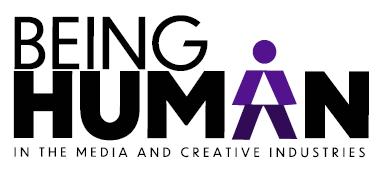Being Human In the Media and Creative Industries
A One Day Post-Graduate Conference
19th June 2024, Faculty of Arts Building.
The Centre for Cultural and Media Policy Studies at the University of Warwick is excited to host our 2024 research conference, Being Human in the Media & Creative Industries: Policies and Practices.
This interdisciplinary conference aims to examine the challenges of being human in the creative industries and to explore the dynamic interplay between these industries and the people that work in them, administer or manage them and that engage with or consume their outputs.
While relations between cultural, creative, artistic and media production and our understanding of ‘the human’ have always been acute, specific tensions are emerging in the contemporary context, including in relation to how culture is managed and administered, how culture is accessed by audiences or aspirant cultural workers and how culture is mediated through technologies, including technologies which challenge conceptions of the human.
We're delighted to have attracted a range of papers from researchers working on different aspects of these challenges and we look forward to a fruitful day of dialogue and exchange.
The event is free but we'd appreciate you registering to attend.
Please register here
10.30 am-Registration and Welcome (FAB1.01)
11 am - 12:30 pm - Session 1: Contemporary Challenges for Cultural/Creative Industries Policy (FAB1.01)
- Naomi Taylor (Birmingham City University): Inside the arts festival: navigating culture today
- Simona Vrabcova (University of Warwick) National identity remains a critical issue: cultural diplomacy, nation branding, and the dilemma for Slovakia
- Ziling Yang (University of Warwick): The Aesthetic Sustainable Model: Practical Insights from Shanghai's Creative Clusters
1 pm - 2:30pm - Session 2: Inclusivity and Access in Culture and Media (FAB1.01)
- Hal Conte (University of Warwick) The BBC Accent, & 'NPR Voice', and Attracting New Audiences; Recent Years and Recent Challenges
- Claire McIntosh (Birmingham City University): Teaching Through Music: The Curriculum for Excellence and Interdisciplinary Learning
- Ray Morrison (University of Sheffield): Seeking a passionate, committed and energetic person: How somatic norms are reinforced in arts employment
2:45 pm – 3.45 - Session 3: Technology and the Mediation of Culture (FAB1.01)
- Joshua Hu (University of Warwick): Unveiling Climate Communication Patterns Between the Chinese Government and the Public on Sina Weibo
- Zohreh Baghban (De Montfort University): Fingery Eyes: Human-ability in the More-than-human Worlds
4:00 pm - 5:00 pm Film: Cod's Head Culture for the Poor plus discussion with George Fleming (FAB Cinema)
5 pm –CMPS Annual Lecture (FAB Cinema): Colin Sterling (University of Amsterdam): ‘Ecologisation is not a metaphor: Culture in the web of life’


